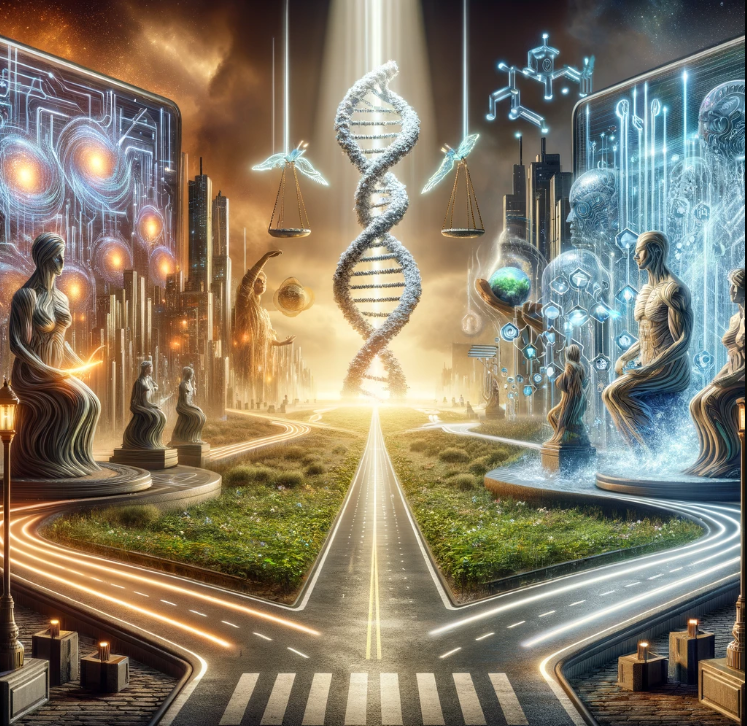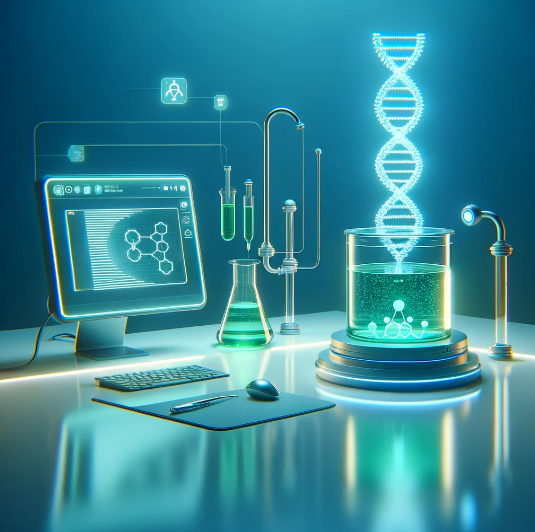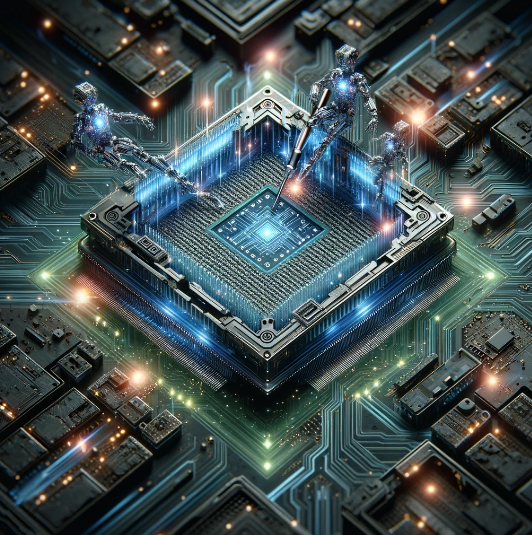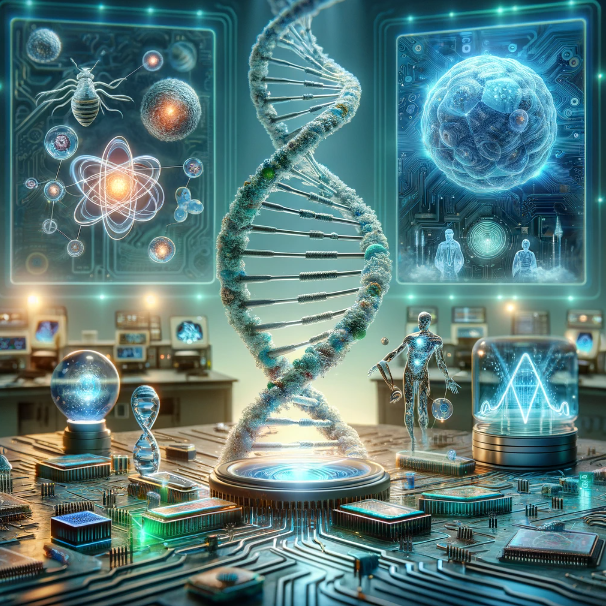
In the year 2038 the world finds itself standing on the precipice of a technological renaissance known as the Biocompute Era. Semiconductor and biological innovations fused, birthing a realm of possibilities once seen only in science fiction. Spearheaded by companies like SynthoGenik Corporation, BionLynk Systems, and Metaibotix Solutions, the Biocompute Era has left a lasting mark on the global landscape. Inventions like the “BioSynx5 Processor,” “BioLynker,” and the “Metabyota-px” software suite, the rules of computing, healthcare, and information storage are rewritten.
As this era marches forward it casts a long shadow of challenges and ethical dilemmas. This report explores Biocompute Era advancements, emphasizing ethics, regulation, and sustainability for a balanced, better future.
A Retrospective

In late 2023 there were many advancements that started the Biocompute era.
SemiSynBio-III Research Program: This initiative by the National Science Foundation focuses on exploring synergies between synthetic biology and semiconductor technology. Key areas include developing computational and experimental bio-molecular models. Designing sustainable bio-materials and fabricating biological-semiconductor electronic systems are also crucial.
Biological-Semiconductor Hybrid Systems: These systems combined the functionalities of living cells and semiconductor technology. They served as a biological interface for various applications, including synthesis, biological sensing, actuation, signal processing, and energy harvesting.
Semiconductor Synthetic Biology (SemiSynBio) had emerged combining the power of synthetic biology with semiconductor technology. SemiSynBio held the potential to revolutionize the semiconductor industry by leveraging the energy efficiency and information processing capabilities of biological systems.
These developments represented a fusion of biology and semiconductor technology, opening new possibilities in data storage, health monitoring, personalized medicine, and advanced computing. Spring-boarding forward to 2038 a slew of advancements and innovations brought new players to the stage.
The SynthoGenik Corporation

The SynthoGenik Corporation leads this innovation wave with their “BioSynx5 Processor,” – a hybrid of synthetic biology and semiconductor technology. This processor provdides superlative computational power and self-repairing capabilities, revolutionizing the computing landscape and propelling SynthoGenik as the household name we know it today.
Of important note however is that the SynthoGenik Corporation faces serious allegations of anti-competitive practices and concerns about a potential monopoly in computing power.
BionLynk Systems
BionLynk Systems, another key player, has introduced the “BioLynker,” a biochip that interfaces with living cells. This chip has applications in real-time genome editing, personalized drug synthesis, and brain-computer interfaces. As a result these are significantly impacting healthcare and eco-monitoring.
However, challenges faced by the BionLynk Systems’ BioLynker system are regarding ethical issues related to neuro-hacking, privacy breaches, and unauthorized genetic modifications.
Metaibotix Solutions
Metaibotix Solutions has made its mark with the “Metabyota-px” software suite, a breakthrough in Software Design Automation (SDA) for synthetic biology, and “Quantum Biofabricators” that use quantum dots for assembling biological systems. These innovations have accelerated progress in information storage creating vast biological data centers, both on land and on the ocean floor.
However, Metaibotix Solutions grapples with the security and safety risks of their biological data centers, highlighted by a major cyber-attack and the accidental release of genetically modified organisms.

Challenges and Ethical Dilemmas:
The Biocompute Era is characterized by the merging of biology and semiconductors, leading to advancements in data storage, health technologies, personalized medicine, and quantum computing.
However, this era has also unveiled challenges and ethical dilemmas. The global market has seen significant shifts with traditional silicon-based technology companies struggling to adapt to these new technological giants. Unchecked company growth risks stifling competition and innovation, causing job loss and economic instability. Stringent regulations and ethical considerations are necessary.
In 2038 the marvels of technology coexist with the shadows of potential negative impacts. The Biocompute Era is a testament to human innovation, but it also demands a balanced approach to navigate its many complexities. This emphasizes the importance of ethics, regulation, and sustainability for a better future.
